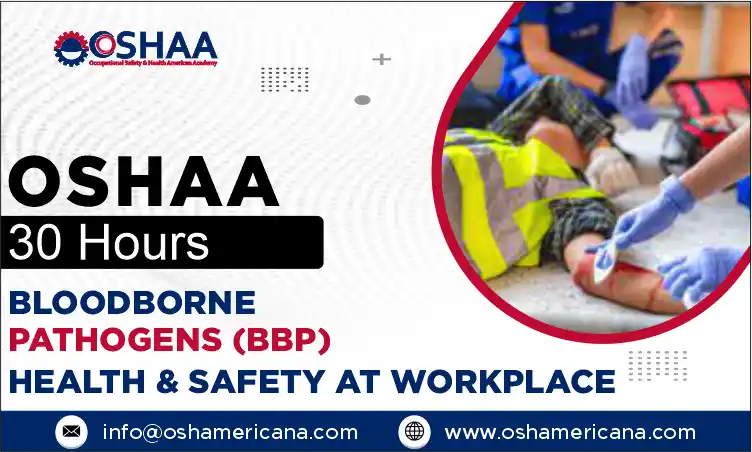Comprehensive Diploma in Safety for Lone Workers – Enhance Workplace Safety Skills
Lone workers operate in diverse industries, often facing unique safety challenges that require specialized training and risk management strategies. The OSHAA 30-Hours Professional Diploma in Safety for Lone Workers is designed to equip individuals with the necessary knowledge and skills to work safely, manage risks, and respond to emergencies effectively.
Lone working can present risks due to the absence of immediate support in case of emergencies, injuries, or workplace hazards. Industries such as healthcare, security, retail, logistics, and field services rely on lone workers, making it essential for individuals in these roles to be prepared for potential safety concerns. This diploma provides comprehensive training to enhance safety awareness, promote best practices, and reduce workplace risks for lone workers.
This course is designed to provide practical safety training for individuals working alone in various environments. It covers risk assessment, emergency response, communication strategies, and legal compliance to ensure that lone workers are equipped to handle challenges effectively.
The OSHAA 30-Hours Professional Diploma in Safety for Lone Workers provides essential training to ensure individuals can work safely, manage risks, and respond effectively to challenges. Whether you are a lone worker or a manager overseeing lone worker safety, this course offers the knowledge and skills needed to maintain a secure working environment.
OSHAA 30-Hours Professional Diploma in Safety for Lone Workers
Study Units
Learning Outcomes
Introduction to Lone Working and Workplace Safety (4 Hours)
- Understand the concept of lone working and its associated risks
- Identify industries and job roles where lone working is common
- Recognise key workplace safety principles applicable to lone workers
- Learn about employer and employee responsibilities in ensuring lone worker safety
Risk Assessment and Hazard Identification for Lone Workers (4 Hours)
- Conduct thorough risk assessments for lone working environments
- Identify common hazards, including physical, environmental, and psychological risks
- Implement control measures to minimise workplace dangers
- Learn effective methods for reporting hazards and safety concerns
Health and Safety Regulations and Legal Responsibilities (4 Hours)
- Understand UK health and safety laws relevant to lone working
- Learn about employer obligations under the Health and Safety at Work Act
- Understand lone worker policies and duty of care responsibilities
- Recognise the importance of compliance with safety regulations
Communication Strategies and Lone Worker Monitoring (3 Hours)
- Understand the importance of maintaining communication while working alone
- Explore monitoring systems and lone worker alert technologies
- Learn best practices for reporting locations and regular check-ins
- Develop strategies for effective communication during emergencies
Personal Safety and Conflict Management (4 Hours)
- Recognise personal safety risks associated with lone working
- Learn strategies for avoiding and de-escalating conflicts in the workplace
- Develop techniques to manage aggression and handle difficult individuals
- Understand how to protect oneself in high-risk situations
Emergency Preparedness and Crisis Response (3 Hours)
- Identify potential emergency situations faced by lone workers
- Learn how to create and follow emergency action plans
- Develop skills to respond to medical emergencies and accidents
- Understand the importance of first aid knowledge for lone workers
Use of Safety Equipment and Technology for Lone Workers (4 Hours)
- Gain knowledge of essential safety equipment for lone workers
- Learn to use lone worker alarms, tracking devices, and emergency response systems
- Understand the role of PPE (Personal Protective Equipment) in lone working
- Explore the latest advancements in safety technology for lone workers
Mental Health and Well-being for Lone Workers (4 Hours)
- Recognise the psychological impact of working alone, including stress and isolation
- Learn coping strategies to manage mental well-being in lone working environments
- Understand the importance of work-life balance for lone workers
- Explore support networks and resources available for lone workers
- Enhanced Safety Awareness – Gain a thorough understanding of the risks associated with lone working and how to mitigate them effectively.
- Comprehensive Risk Management Skills – Learn how to identify hazards, conduct risk assessments, and implement safety measures in lone working environments.
- Legal and Regulatory Compliance – Understand UK health and safety laws, ensuring compliance with lone worker policies and employer responsibilities.
- Improved Emergency Preparedness – Develop the ability to handle crisis situations, medical emergencies, and workplace incidents with confidence.
- Advanced Communication Strategies – Learn effective methods for maintaining contact, using monitoring systems, and responding to security threats.
- Conflict Resolution and Personal Safety – Acquire techniques for managing workplace conflicts, de-escalating aggressive behaviour, and staying safe.
- Mental Health and Well-being Support – Understand the psychological challenges of working alone and apply strategies to maintain mental well-being.
- Use of Safety Technology and Equipment – Gain hands-on knowledge of lone worker safety devices, PPE, and modern tracking systems.
- Career Advancement Opportunities – Strengthen employability in industries requiring lone workers, improving job security and professional growth.
- Applicable Across Multiple Industries – Develop skills relevant to healthcare, security, retail, logistics, maintenance, field services, and self-employment.
This diploma equips lone workers and managers with essential knowledge and skills to ensure a safer, more secure working environment while enhancing career prospects.
The OSHAA 30-Hours Professional Diploma in Safety for Lone Workers is designed for individuals working alone in various industries, as well as managers responsible for lone worker safety. This course is ideal for:
- Healthcare Professionals – Community nurses, social workers, home carers, and paramedics who visit clients independently.
- Security Personnel and Night Workers – Security guards, patrol officers, and night shift workers operating in isolated settings.
- Retail and Hospitality Staff – Employees working alone during late shifts or in remote locations.
- Delivery Drivers and Field Service Workers – Couriers, logistics staff, and technicians conducting home or site visits.
- Maintenance and Utility Workers – Engineers, repair personnel, and utility workers performing tasks in remote areas.
- Construction and Industrial Workers – Employees working on isolated sites or in hazardous environments.
- Self-Employed and Freelancers – Tradespeople, contractors, and independent professionals who frequently work alone.
- Managers and Supervisors – Employers responsible for implementing lone worker policies and ensuring workplace safety.
This diploma provides valuable knowledge and skills to enhance safety, manage risks, and comply with legal requirements, making it essential for anyone working alone or overseeing lone worker safety.







